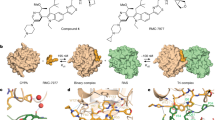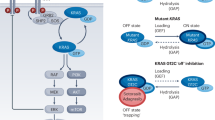Abstract
A variety of epigenetic changes contribute to transcriptional dysregulation in myelodysplastic syndromes (MDSs) and acute myeloid leukemia (AML). DNA methyltransferase (DNMT) inhibitors—azacitidine and decitabine—have significant activity in the treatment of MDS. Despite marked activity in myeloid malignancy, monotherapy with DNMT inhibitors is limited by low complete and partial response rates (7–20%) and median response durations of 15 months. As with classical cytotoxic therapy, the targeting of biologic pathways and mechanisms may best be accomplished using a combination of agents offering complementary mechanisms and synergistic pharmacodynamic interactions. The goal of this approach is to improve response rates, quality, and duration, and to minimize adverse events. There are a number of new therapies under development for the management of MDS and AML. This review article touches on some of the more promising combination regimens in various phases of investigation. The treatment of MDS and AML is undergoing rapid evolution. Cytogenetic complete remission and prolonged survival represent important goals. Incremental improvements in disease state and quality-of-life issues are also important for patients. Given the overall failure of cytotoxic chemotherapy in the achievement of cures in MDS and MDS-related AML, the application of less toxic, biologically directed agents may represent a more promising approach to treatment. Combination therapies with DNMT inhibitors using optimal dosing regimens to focus on methylation reversal with lower doses over longer periods of time, rather than direct cytotoxic effects, are beginning to suggest promising results in MDS and AML.
This is a preview of subscription content, access via your institution
Access options
Subscribe to this journal
Receive 12 print issues and online access
$209.00 per year
only $17.42 per issue
Buy this article
- Purchase on Springer Link
- Instant access to full article PDF
Prices may be subject to local taxes which are calculated during checkout

Similar content being viewed by others
References
List A (2004) New paradigm in the management of myelodysplastic syndromes. Cancer Control 11 (Suppl 6): 2
Cheson BD et al. (2000) Report of an international working group to standardize response criteria for myelodysplastic syndromes. Blood 96: 3671–3674
Silverman LR et al. (2002) Randomized controlled trial of azacitidine in patients with the myelodysplastic syndrome: a study of the Cancer and Leukemia Group B. J Clin Oncol 20: 2429–2440
List AF et al. (2004) Myelodysplastic syndromes. Hematology (Am Soc Hematol Educ Program): 297–317
Bruserud O et al. (2000) Induction of differentiation and apoptosis—a possible strategy in the treatment of adult AML. Oncologist 5: 454–462
Ravandi F et al. (2004) New agents in acute myeloid leukemia and other myeloid disorders. Cancer 100: 441–454
Saba HI et al. (2005) Clinical benefit and survival endpoints from a phase III trial comparing decitabine (DAC) vs. supportive care (SC) in patients with advanced myelodysplastic syndromes (MDS) [abstract]. J Clin Oncol 23: 6543
Wijermans P et al. (2000) Low-dose 5-aza-2'-deoxycytidine, a DNA hypomethylating agent, for the treatment of high-risk myelodysplastic syndrome: A multicenter phase II study in elderly patients. J Clin Oncol 18: 956–962
Herman JG and Baylin SB (2003) Gene silencing in cancer in association with promoter hypermethylation. N Engl J Med 349: 2042–2054
Gore SD et al. (2004) Changes in promoter methylation and gene expression in patients with MDS and MDS-AML treated with 5-azacitidine and sodium phenylbutyrate [abstract]. Blood 104: 469
Garcia-Manero G et al. (2004) Results of a phase I/II study of the combination of 5-aza-2' deoxycytidine (DAC) and valproic acid (VPA) in patients (pts) with leukemia [abstract]. J Clin Oncol 23: 6544
Gojo I et al. 2003 Phase I study of histone deacetylase inhibitor (HDI) MS-275 in adults with refractory or relapsed hematologic malignancies [abstract]. Blood 102: A1408
Garcia-Manero G et al. (2004) Phase I study of oral suberoylanilide hydroxamic acid (SAHA), a histone deacetylase inhibitor, in patients (pts) with advanced leukemias or myelodysplastic syndromes (MDS) [abstract]. J Clin Oncol 22: 3027
Raza A et al. (1999) Biologic and clinical response to recombinant human soluble tumor necrosis factor receptor (Enbrel) in patients with myelodysplastic syndromes (MDS) [abstract]. Blood 94: 171b
Deng C et al. (1998) Role of the ras-MAPK signaling pathway in the DNA methyltransferaes response to DNA hypomethylation. Biol Chem 379: 1113–1120
Kurzrock R et al. (2004) Phase II study of R115777, a farnesyl transferase inhibitor, in myelodysplastic syndrome. J Clin Oncol 22: 1287–1292
Feldman EJ (2005) Farnesyltransferase inhibitors in myelodysplastic syndrome. Curr Hematol Rep 4: 186–190
Esteller M et al. (2002) Hypermethylation-associated inactivation of the cellular retinol-binding-protein 1 gene in human cancer. Cancer Res 62: 5902–5905
Ferrara FF et al. (2001) Histone deacetylase-targeted treatment restores retinoic acid signaling and differentiation in acute myeloid leukemia. Cancer Res 61: 2–7
Gotlib J et al. (2003) Phase II study of bevacizumab (anti-VEGF humanized monoclonal antibody) in patients with myelodysplastic syndrome (MDS): Preliminary results [abstract]. Blood 102: A1545
Karp JE et al. (2004) Targeting vascular endothelial growth factor for relapsed and refractory adult acute myelogenous leukemias: therapy with sequential 1-beta-d-arabinofuranosylcytosine, mitoxantrone, and bevacizumab. Clin Cancer Res 10: 3577–3585
List A et al. (2005) Efficacy of lenalidomide in MDS. N Engl J Med 352: 349–357
Douer D et al. (2004) Treatment of acute myelogenous leukemia (Non-APL) with intravenous Trisenox® (arsenic trioxide) and ascorbic acid: preliminary results [abstract]. Blood 104: A1815
Bahlis NJ et al. (2002) Feasibility and correlates of arsenic trioxide combined with ascorbic acid-mediated depletion of intracellular glutathione for the treatment of relapsed/refractory multiple myeloma. Clin Cancer Res 8: 3658–3668
Author information
Authors and Affiliations
Corresponding author
Ethics declarations
Competing interests
Prof Steven D Gore is a consultant of Pharmion Corp. and Celgene Corp. and a member of their speakers' bureaus.
Rights and permissions
About this article
Cite this article
Gore, S. Combination therapy with DNA methyltransferase inhibitors in hematologic malignancies. Nat Rev Clin Oncol 2 (Suppl 1), S30–S35 (2005). https://doi.org/10.1038/ncponc0346
Received:
Accepted:
Issue Date:
DOI: https://doi.org/10.1038/ncponc0346
This article is cited by
-
Inhibition of phospholipase D2 augments histone deacetylase inhibitor-induced cell death in breast cancer cells
Biological Research (2020)
-
Epigenetic regulation of caloric restriction in aging
BMC Medicine (2011)
-
Reexpression of epigenetically silenced AML tumor suppressor genes by SUV39H1 inhibition
Oncogene (2010)
-
In vitro assessment of cytochrome P450 inhibition and induction potential of azacitidine
Cancer Chemotherapy and Pharmacology (2010)
-
Mechanism-anchored profiling derived from epigenetic networks predicts outcome in acute lymphoblastic leukemia
BMC Bioinformatics (2009)



